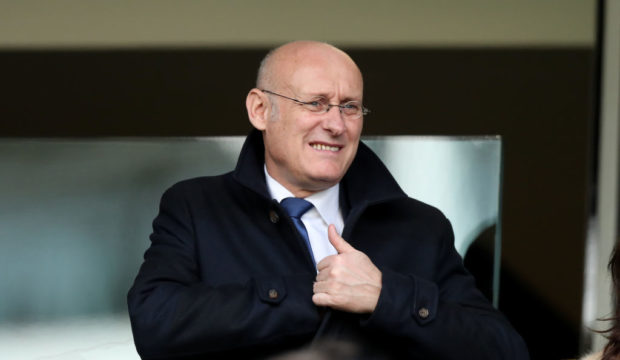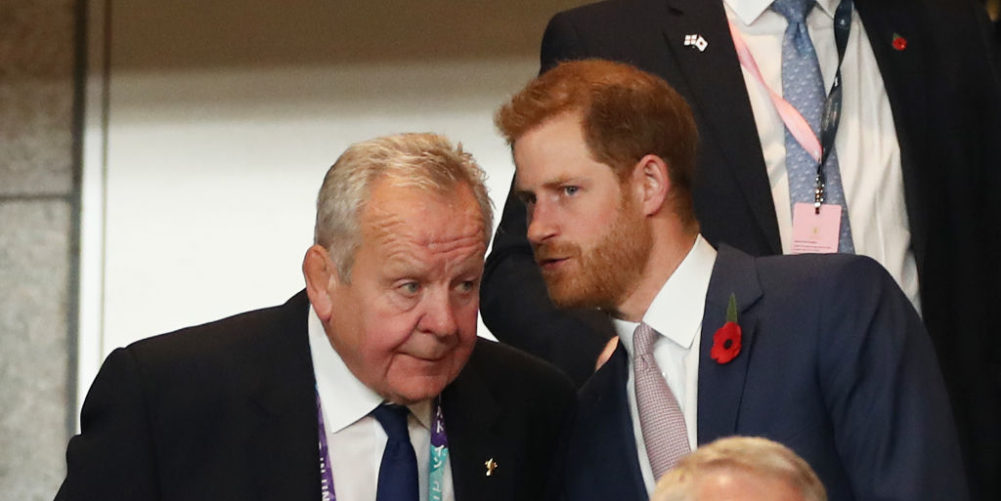Midway through the BBC's ancient but still mesmerising adaptation of Tinker, Tailor, Soldier, Spy, there is a pivotal discussion between George Smiley, the hero of John Le Carre's classic espionage tale, and the promotion-hungry Toby Esterhase, one of several colleagues implicated in an MI6 palace coup.
Smiley attempts to sweet-talk his man into divulging information by suggesting that “Control”, the boss of the secret service, might “move him up a few rungs”. To which Esterhase replies: “Actually, I'm not sure he is able to these days. Are you?”
Bill Beaumont is World Rugby's version of “Control” – a man blessed with all the power he could crave, except the power to wield it.
He indicated as much within a day of securing himself a second term as chairman of the organisation, telling us precisely what he couldn't do while being impenetrably vague about what he could.
“The Six Nations is owned by the Six Nations,” he said, tacitly admitting that even if a clear majority of World Rugby's council members favoured shifting the oldest and best-loved of tournaments back a few weeks to aid the establishment of a global season, or introducing promotion and relegation in an effort to grow the sport in fertile terrain like Georgia, it would mean diddly-squat.
Nothing much has changed in this regard since John Feehan, then the chief executive of the Six Nations, placed his cards face up on the table during a discussion with this columnist in early 2016.
Describing it as a “closed” competition, he said: “What we have here is the greatest annual tournament in the union game – the biggest, the most lucrative, the most looked-at, the best attended. Why would we want to change any of that?
“As we have the strongest teams in Europe already involved, the only way to bring in another team would be through expansion.
“We certainly couldn't exclude anyone already involved. And if we attempted to increase the number of matches, there would immediately be an issue surrounding fixture congestion. This is not on our agenda and frankly, it is not the job of the Six Nations to provide solutions for Georgia, Romania or anyone else.”
Those comments should remind us that World Rugby is not as strong as it makes itself out to be, because it has little in the way of sovereignty to call its own.
Rather, it is the creature of its member unions, the most influential of which, in all sorts of ways, are the Six Nations bloc, who between them have 18 of the 51 votes available to council members and are therefore rarely more than a fingertip away from a majority.
It is also worth pointing out that according to the latest information held by the companies registration office in Ireland, where Six Nations Rugby Ltd is based, five of the nine directors – the RFU chief executive Bill Sweeney; Gareth Davies, chairman of the Welsh Rugby Union; John Jeffrey, a big figure on the Scottish Rugby Union; Antonino Sacca, vice-president of the Italian Rugby Union; and Bernard Laporte, president of the French Rugby Federation and Beaumont's newly-elected second-in-command – have seats on the World Rugby council.

Together, they amount to a formidable group of rugby politicians. If they take the collective view that their countries' interests are better served by the Six Nations continuing as a stand-alone private members' club, that is what will happen.
Multiple hat-wearing is nothing new in Rugby Union governance: the sport has always been run this way.
But as the talk since the outbreak of Covid-19 has been about radical restructurings of the international game and brave new worlds for the so-called “Tier Two” countries, it is legitimate to ask whether the old ways are now truly fit for purpose.
The real world game, football, is a beacon of democracy when set against the union code.
Its governing body, FIFA, may have had its stink-to-high-heaven moments on the corruption front, but it at least runs its congress on the basis of one member, one vote. Rugby is way behind the curve on that metric.
Take Tonga, the poorest of the poor Pacific cousins treated so shabbily for so long by the foundation nations.
At the 2007 World Cup, they scared the life out of the Springboks, the champions-in-waiting. Four years later, they beat France, the eventual finalists, and almost did it again in Japan last autumn.
Yet they do not have their own seat on the council presided over by Beaumont. Unlike the United States, who have won three World Cup games in 25 attempts, or Canada, who have managed the grand total of one victory since 2003.
The governing classes may talk a good game with their promises to spread the rugby gospel, but they play a pretty bad one when it comes to giving everyone an equal voice.
Beaumont knows better than anyone that there is only so much he can do in reshaping the sport for our coronavirus-ravaged age, so expectation management is the wise approach.
It must be frustrating for him, nonetheless. He wears the crown, but the crown jewels belong to others.

























